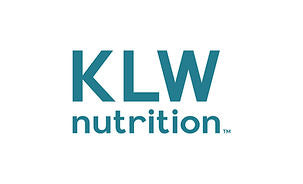What is COLLAGEN?
Collagen is a type of protein, composed mainly of the amino acids (small building blocks of protein) known as glycine, proline, and hydroxyproline.
It is one of the body's most abundant structural proteins (a structural protein is one that makes up the structure or framework of your cells and tissues components) and makes up almost 80% of the body's skin, muscles, and connective tissue.
And collagen is not just a building block of protein, that supports the structure of our tissues, it also plays an important role in sending signals between our cells, helping to organise the movement of cells to repair damage in our bodies and even the immune response.
Connective tissue cells are known as fibroblasts, and these cells produce and maintain collagen. But, as we age, our collagen becomes damaged, fibroblast function reduced, and collagen production decreases.
These changes, as well as the decrease in another vital structural protein called elastin, leads to signs of aging such as dry, sagging skin and wrinkles. In addition, the collagen found in the skeletal system decrease as we age too, resulting in a decrease in our bone strength.
In fact, between the ages of 20 and 30, the body slowly begins to naturally produce less and less collagen, and it is believed that from the age of 25, your body's collagen levels decrease at a rate of 1.5% every year.
This means that by the age of 35 your body will have lost 15% and by the age of 45 a whopping 30%. It is at this point (which is what happened to me) that you really begin to see a change in your skin's elasticity and texture.
And it’s not just the skin which you may notice changes in, our joints, muscles and bones slowly become more stiff and frail, as well.
Different types of COLLAGEN
28 different types of collagen have been identified to date.
Types I, II, III, IV and V are the most common in the human body. It is thought that the different types of collagen have different roles in the body.
Earlier research has determined that types I and III are found in the skin and organs, whilst type II is typically found in joints and cartilage. However, I must point out that more research is needed to understand how the different types of collagen supplements may impact health in humans.
Is there much evidence supporting collagen supplementation?
A number of studies have shown that taking collagen supplements may improve skin elasticity, hydration, and decrease the appearance of wrinkles. A review of 19 studies that included 1,125 participants (95% women) between the ages of 20 and 70 found that taking hydrolysed collagen improved skin hydration, elasticity, and wrinkles compared with placebo treatments [1].
The results of improved hydration and elasticity were also confirmed in the subgroup meta-analysis. Based on these results, supplementing with hydrolysed collagen for 90 days is effective in decreasing skin ageing, as it decreases wrinkles and improves skin elasticity and hydration [1].
Another review of 10 studies assessed the evidence regarding the effects of collagen supplements on skin health in healthy participants and found that oral supplementation of hydrolysed collages improves skin health [2].
What sort of dose is recommended?
The doses of collagen shown to be effective for improving skin health in research studies vary, though most studies have used 2.5–15 grams per day for 8 weeks or longer (3,4). One review of 11 studies with mainly female participants found that supplementing with 3-10g of collagen per day for an average of 69 days resulted in improved skin elasticity and hydration [3].
A smaller dose of 2.5g may benefit skin health and hydrations as well as joint pain, but more research investigating this smaller dose is warranted.
Collagen supplements may work by encouraging your body to produce more collagen itself. Also, collagen supplements may increase the production of other proteins such as elastin and fibrillin that help skin structure [3].
What is Hydrolysed Marine Collagen?
Hydrolysed collagen is a common type of collagen that is created using a process called hydrolysis. This process breaks down the protein into smaller pieces, making it easier for the body to absorb. The percentage of collagen that is absorbed into your body when ingested (bioavailability) is critical to the effectiveness of the supplement. Bioavailability largely determines how well any nutrient you ingest works.
The problem with collagen molecules is that they are huge, so unless they’ve been hydrolysed, they are just too huge to be absorbed when ingested, and therefore can’t reach the dermis - the underlying layer of the skin where the collagen is. The collagen in My Skin Hero is absorbed quickly in the body and able to go where needed i.e. the skin!
References
[1] de Miranda RB, Weimer P, Rossi RC. (2021) Effects of hydrolyzed collagen supplementation on skin aging: a systematic review and meta-analysis. Int J Dermatol. 60(12):1449-1461.
[2] Barati M, Jabbari M, Navekar R, Farahmand F et al. (2020) Collagen supplementation for skin health: A mechanistic systematic review. J Cosmet Dermatol. 19(11):2820-2829.
[3] Choi FD, Sung CT, Juhasz ML, Mesinkovsk NA.(2019) Oral Collagen Supplementation: A Systematic Review of Dermatological Applications. J Drugs Dermatol.18(1):9-16.
[4] Paul C, Leser S, Oesser S. (2019 Significant Amounts of Functional Collagen Peptides Can Be Incorporated in the Diet While Maintaining Indispensable Amino Acid Balance. Nutrients.11(5):1079.

